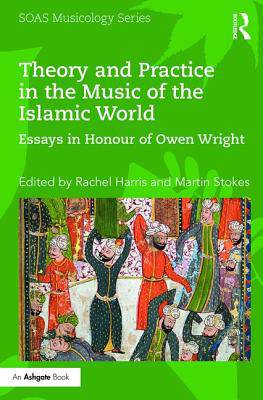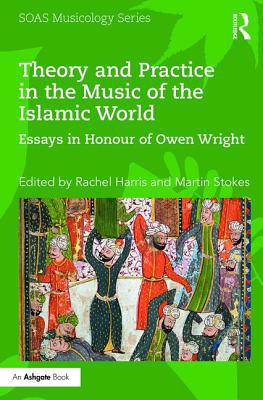
- Retrait gratuit dans votre magasin Club
- 7.000.000 titres dans notre catalogue
- Payer en toute sécurité
- Toujours un magasin près de chez vous
- Retrait gratuit dans votre magasin Club
- 7.000.000 titres dans notre catalogue
- Payer en toute sécurité
- Toujours un magasin près de chez vous
Theory and Practice in the Music of the Islamic World
Essays in Honour of Owen Wright
Description
This volume of original essays is dedicated to Owen Wright in recognition of his formative contribution to the study of music in the Islamic Middle East. Wright's work, which comprises, at the time of writing, six field-defining volumes and countless articles, has reconfigured the relationship between historical musicology and ethnomusicology. No account of the transformation of these fields in recent years can afford to ignore his work. Ranging across the Middle East, Central Asia and North India, this volume brings together historical, philological and ethnographic approaches. The contributors focus on collections of musical notation and song texts, on commercial and ethnographic recordings, on travellers' reports and descriptions of instruments, on musical institutions and other spaces of musical performance. An introduction provides an overview and critical discussion of Wright's major publications. The central chapters cover the geographical regions and historical periods addressed in Wright's publications, with particular emphasis on Ottoman and Timurid legacies. Others discuss music in Greece, Iraq and Iran. Each explores historical continuities and discontinuities, and the constantly changing relationships between music theory and practice. An edited interview with Owen Wright concludes the book and provides a personal assessment of his scholarship and his approach to the history of the music of the Islamic Middle East. Extending the implications of Wright's own work, this volume argues for an ethnomusicology of the Islamic Middle East in which past and present, text and performance are systematically in dialogue.
Spécifications
Parties prenantes
- Editeur:
Contenu
- Nombre de pages :
- 322
- Langue:
- Anglais
- Collection :
Caractéristiques
- EAN:
- 9781138218314
- Date de parution :
- 22-11-17
- Format:
- Livre relié
- Format numérique:
- Genaaid
- Dimensions :
- 156 mm x 233 mm
- Poids :
- 661 g






